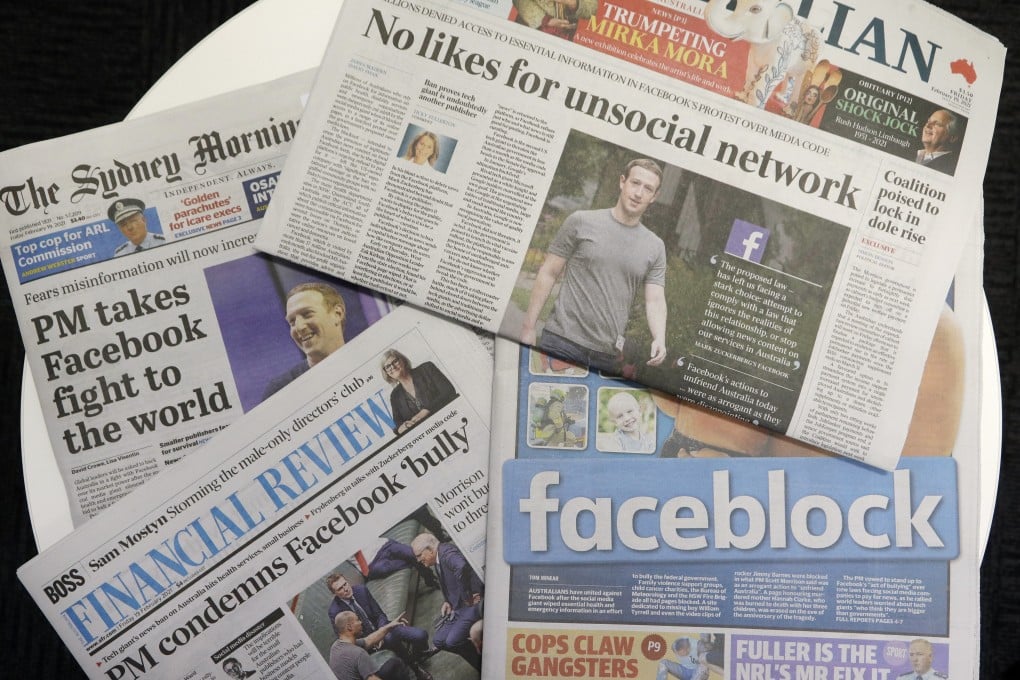Advertisement
Opinion | Facebook vs Morrison: whoever wins, Australia loses
- The Australian prime minister is seeking global support after the Digital Lord Facebook banned Australian news from its platform
- Yet even if he succeeds in getting Facebook to back down, the real winner will not be public interest journalism but another media giant: News Corp
Reading Time:4 minutes
Why you can trust SCMP
33

The day after Facebook, the Digital Lord, banned Australian news from its platform, the world is still watching.
Of course, it’s watching. After two decades of absence of regulation, the Digital Lords of the Western world such as Google and Facebook are finally under pressure.
The fight did not start in Australia and it is already global: from the United States to France, Spain, to Germany and Canada, the tech giants are being accused of being too big, too powerful, too unaccountable to the public.
Advertisement
So, it comes as no surprise that the Australian prime minister, Scott Morrison, less than 24 hours since the ban took effect, reached out for the support of world leaders to a common cause: curbing the Digital Lords. He called them all: from India, to Canada to France.
There are a few political reasons for this call for international action.
Advertisement
Firstly, every issue concerning the governance of the Digital Lords of the West would really need a global action. Their reach is global and their ruthless profit-driven data collection is also global. So the Australian case could provide a fantastic opportunity to finally address their uncontested monopoly of the digital sphere in the West.
Advertisement
Select Voice
Select Speed
1.00x
